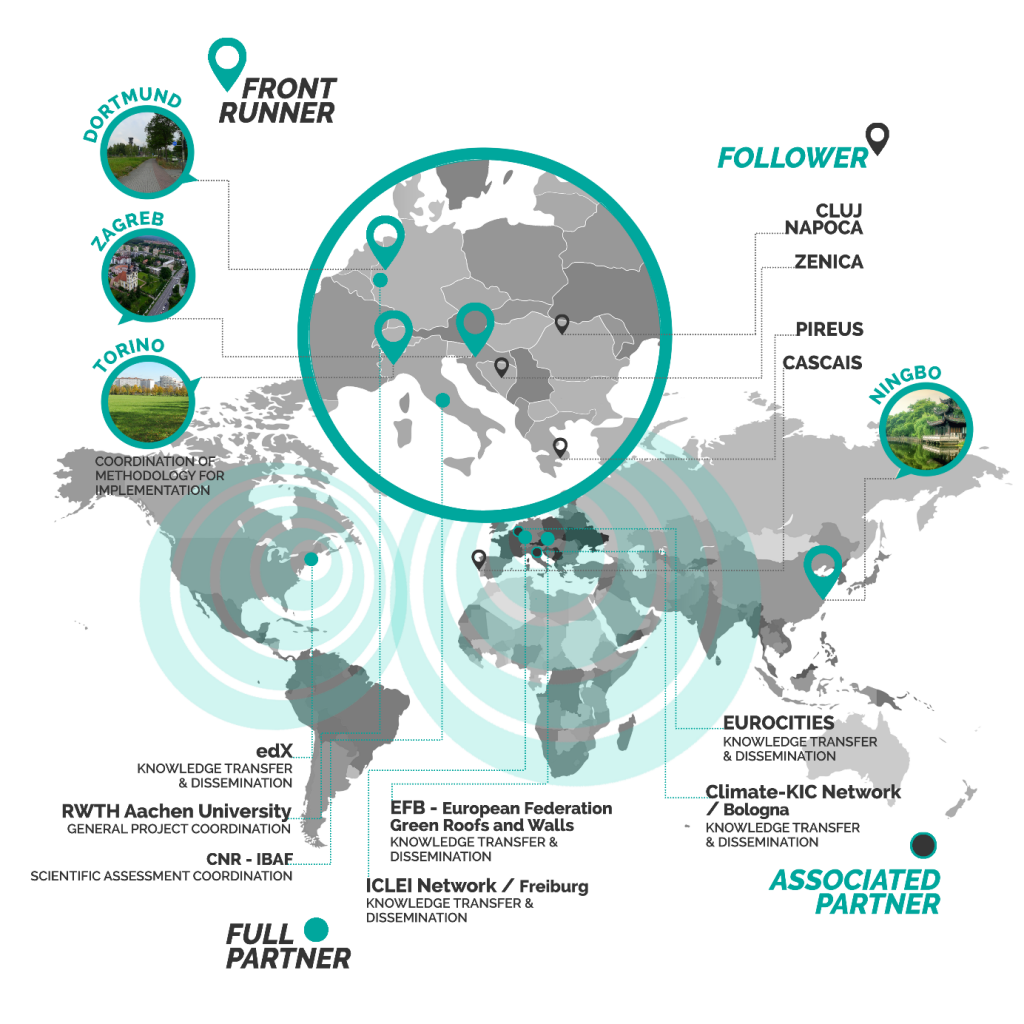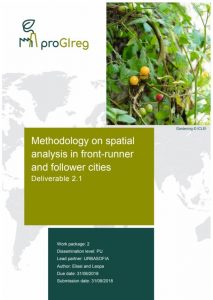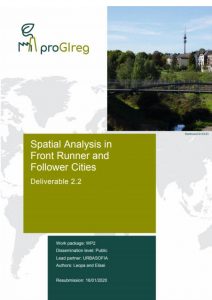- Title: Productive Green Infrastructure for Post-industrial Urban Regeneration
- Acronym: proGIreg
- Funding: Horizon 2020 | H2020-SCC-NBS-2stage-2017
- Lead Applicant: RHEINISCH-WESTFAELISCHE TECHNISCHE HOCHSCHULE AACHEN (RWTH Aachen)
- Duration: 60 months (June 2018 – May 2023)
- Website: proGIreg
ProGIreg focuses on developing and testing new Nature Based Solution (NBS)-oriented economies shared between public authorities, civil societies and industry / SMEs. Leveraging on the potential of Green Infrastructure (GI) as a driver for the creation of new ecosystems in cities, proGIreg demonstrates the integration of a number of 8 NBS into business models which will be economically self-sustaining, and which will provide multiple benefits for the economic, ecological and social regeneration of deprived urban areas suffering from the consequences of de-industrialization. The NBS will be tested within Living Labs in 4 Front-Runner Cities (FRC), while another 4 Follower Cities (FC) will be supported to develop their strategies for embedding nature-based innovation at local level, though participatory processes .

The Front Runners taking part in proGIreg are Dortmund (Germany), Turin (Italy), Zagreb (Croatia) and Ningbo (China), a leading city in urban regeneration experimentation. Other four cities are committed to replicate the solutions in comprehensive, integrated Urban Regeneration Plans: Cascais (Portugal), Cluj-Napoca (Romania), Piraeus (Greece) and Zenica (Bosnia and Herzegovina).
As Urban and Regional planning experts, our job was to create the methodology for the spatial analysis in the front-runner and follower cities, to coordinate and to support all 8 cities in their analyses. The Methodology is a public deliverable, which can be very useful to other cities or professionals as well, and you may find it here:
You can also read the integral Spatial Analysis in the 8 proGIreg cities by clicking this document:
In the second half of the project, our main task is to coordinate the co-design process of the Urban Regeneration Plans, effectively supporting Cascais, Cluj-Napoca, Piraeus and Zenica in setting up strategic frameworks to help make these cities more sustainable and better places to live, with the use of Nature-Based Solutions.


